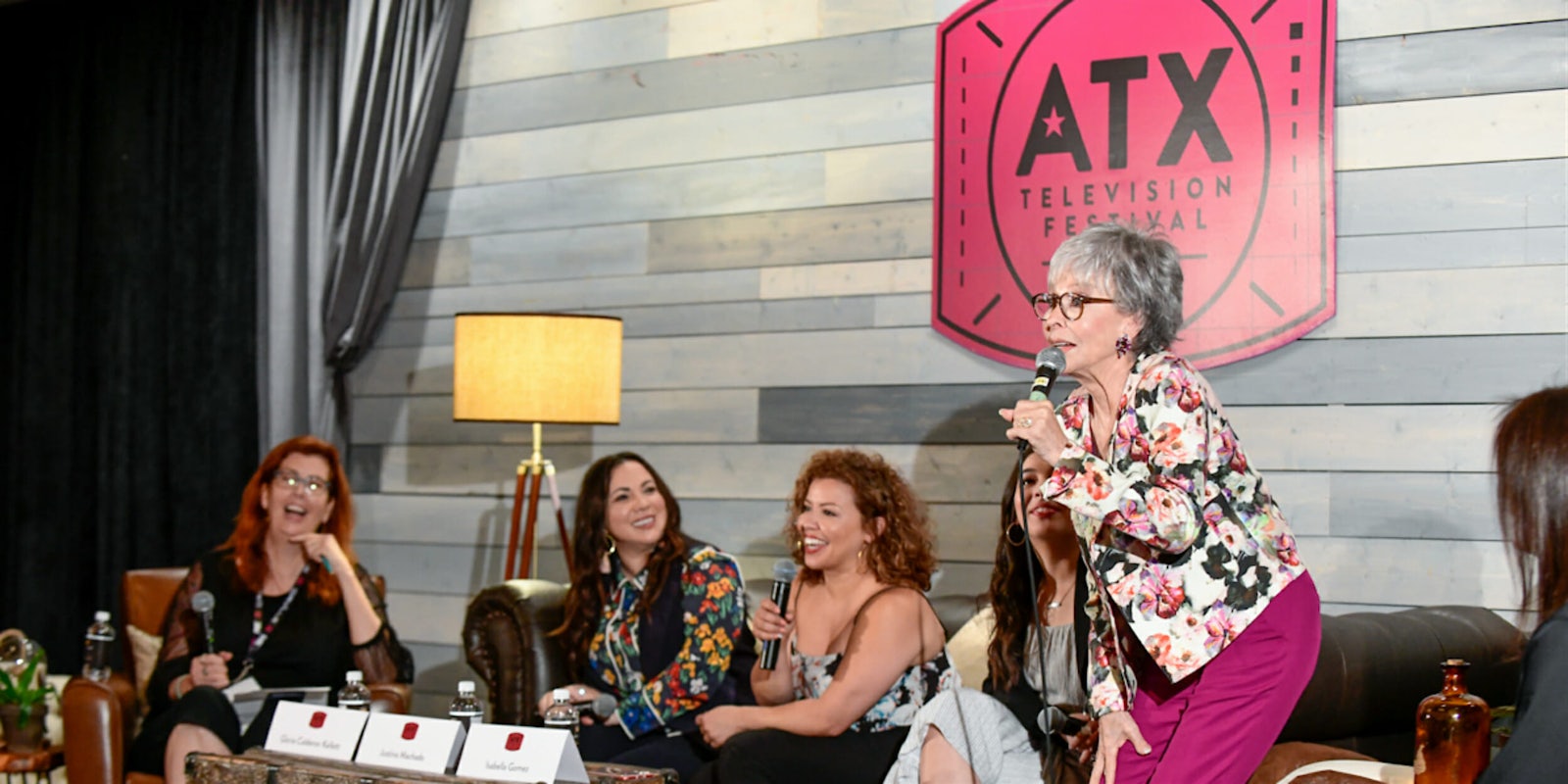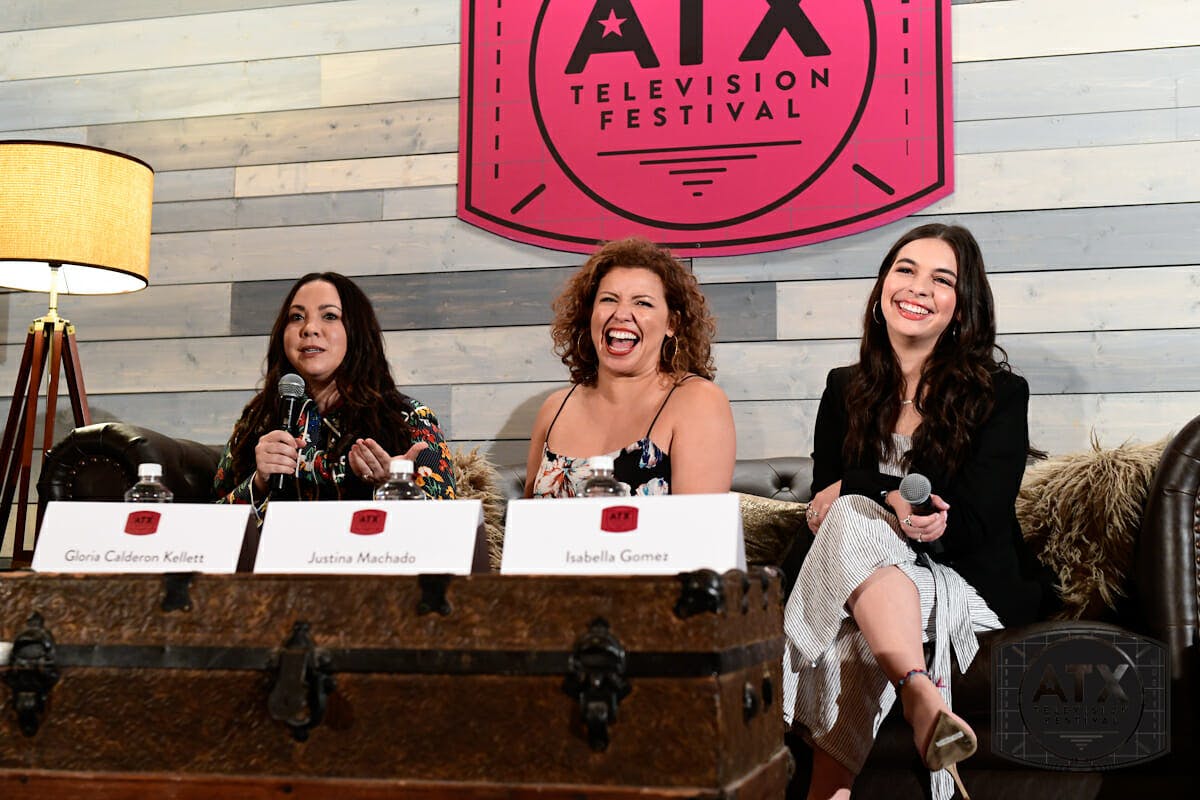When Norman Lear approached Gloria Calderón Kellett for a reboot of One Day at a Time, she had reservations. She wanted to make sure a show about a Latino family was real and right and that she wasn’t just there “for the poster.” When she met with co-showrunner Mike Royce, he assured her: We’re partners.
“At a time when men are being held accountable for being terrible, these two men are glorious, wonderful, and really have lifted me up,” Kellett said during the show’s ATX Television Festival panel on Saturday.
But the show is about its women: Kellett was joined by director Pamela Fryman and cast members Justina Machado, Isabella Gomez, and Rita Moreno, who got a standing ovation before the panel even started. It’s a show about a Cuban-American matriarchy: Moreno as grandmother Lydia, Machado as single mom and veteran Penelope, Gomez as teenage daughter Elena, who has come out as gay. It’s easy to look at the live-audience format and see this as another family sitcom, but One Day at a Time is serving teachable moments.
The lack of Latinx representation and voices on TV was addressed, as was how social media is changing that. “If we write us like people, how we are, then we’re OK,” said Machado, who is Puerto Rican. “Every immigration story is different, by the way.” Moreno called the writers’ room the UN: There are Cuban, Puerto Rican, Argentinian, and El Salvadorian writers. The staff is half female. There are three queer writers, and then, of course, there are a few white people. However, Kellett said that the people they are often trying to reach or educate are like Schneider (Todd Grinnell), the show’s well-meaning but often clueless white neighbor.
Moderator Maureen Ryan addressed the heartbreaking season 2 finale after Lydia’s stroke. Moreno said it was “hard as hell” to lay in a bed while different characters did emotional monologues. She started to cry during Machado’s and said she had to “fight” with the tear that was forming in her eye.
Lydia has become one of the show’s most beloved characters, especially with younger fans. When they were discussing the character of Lydia, Moreno wanted her “to be a sexual person,” despite being a grandmother. Moreno also told a story about West Side Story makeup artists making her skin darker for the role; after she expressed her concerns, it was insinuated that perhaps she was racist.
The show is also remarkable in its depiction and handling of PTSD and depression, especially because, as many on the panel reiterated, Latinos are often told depression is just something you have to push down. Season 3, which returns in 2019, will go a little deeper on the issue of depression, as well as Elena’s love life. In the Q&A portion, an audience member stated that she’s a single Latina mother whose father lives with them and that her daughter, who is gay, told her the show makes her feel normal. Several other audience members stated similar feelings about being seen.
When Roseanne was canceled, Netflix threw a little shade in the form of a tweet. “The middle-class hero has been gone for a long time,” Machado said. But beyond representing Latinx voices on-screen, Kellett had another message for writers and actors looking to get in a writers’ room. She used Lin-Manuel Miranda, a fan of the show, as an example. “You can do this,” Kellett said. “You don’t have to ask Lin-Manuel because you can be Lin-Manuel.”
Reminder: @OneDayAtATime is a sitcom about a tight-knit, working class family that tackles extremely topical social issues in a smart and innovative way. Ya know, if you’re suddenly looking for a show like that… pic.twitter.com/er4Fx6Cxb6
— Netflix (@netflix) May 30, 2018
But something else she said during the panel resonated in terms of TV-watching and just existence at a time when so many negative voices are circulating: “We’re at a time,” she said, “when we need a little kindness and a little love.”



